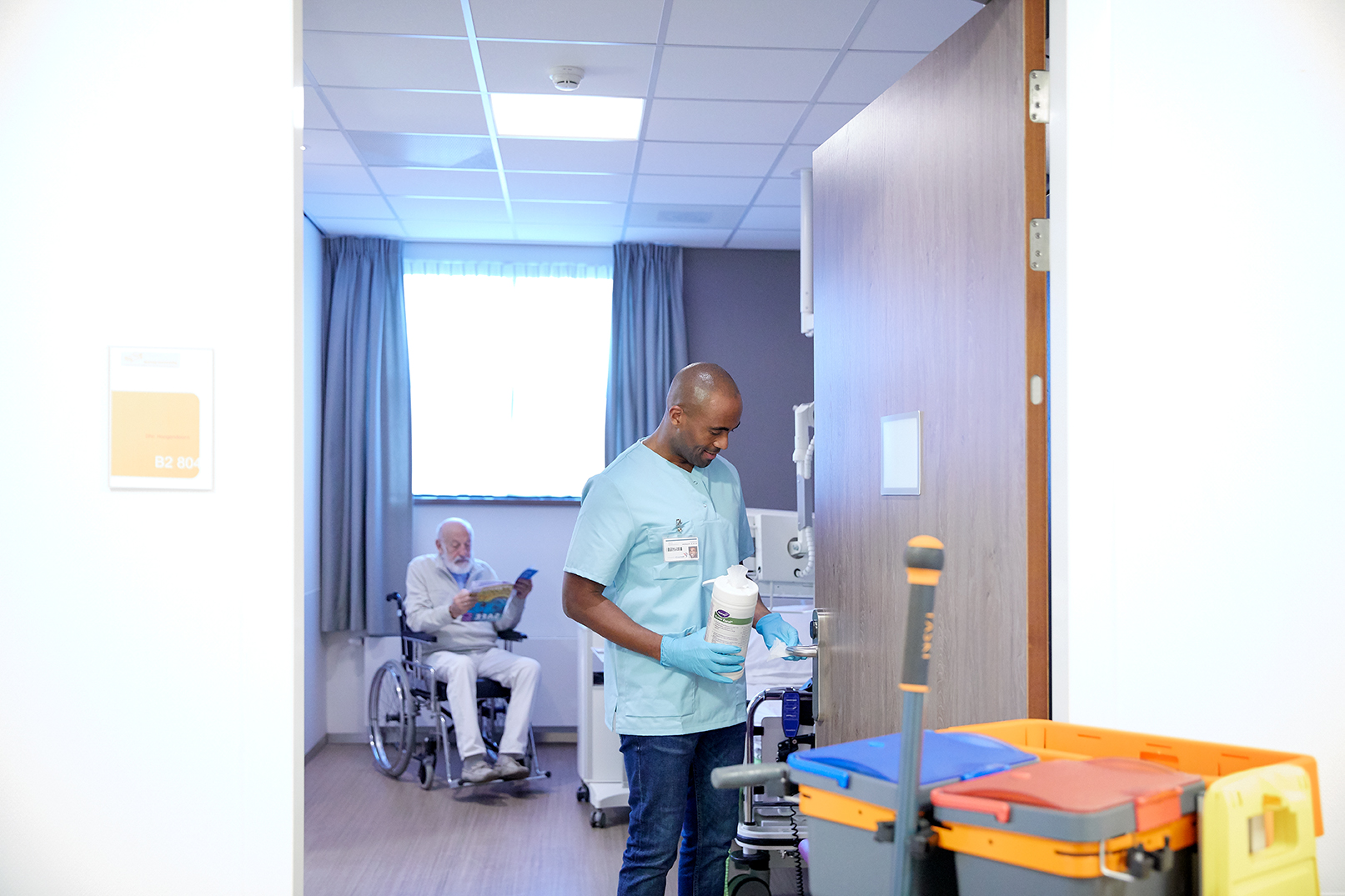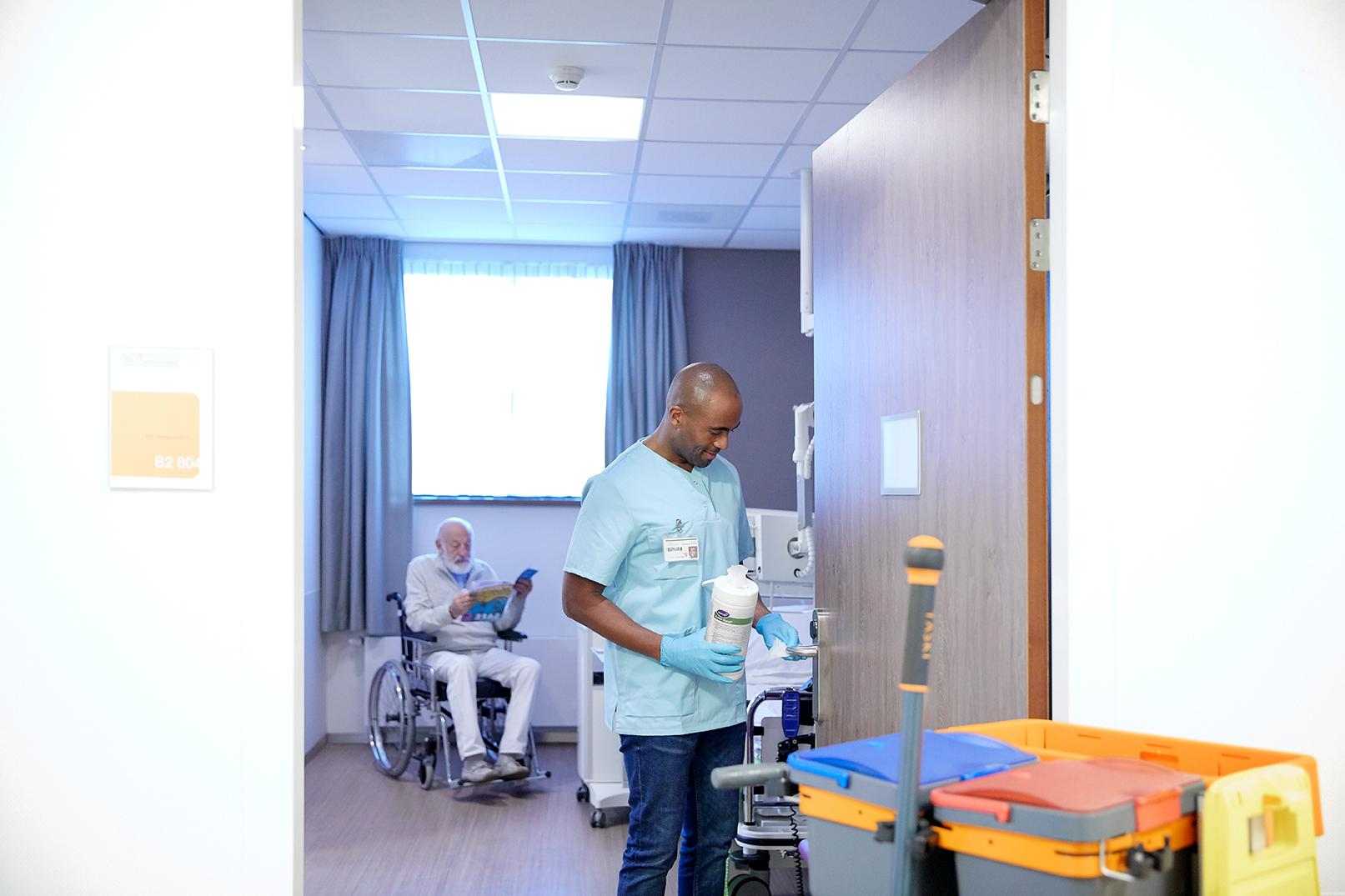When people in the cleaning industry and medical profession talk about infection prevention they often mention “the chain of infection”. But what is this and why is it important?
Viruses like the one that causes COVID-19 can spread in many ways. The most direct is through person-to-person contact, such as when we kiss each other. Another is when we breathe in the tiny droplets produced by infected people when they cough or sneeze. We also know from studies during the pandemic that talking, singing, shouting, or even simply breathing can also produce droplets that spread the virus through the air.
Another main way that the virus can spread is through touching contaminated surfaces. The droplets produced when an infected person coughs, sneezes, and so on can land on any surface. If someone else touches that surface, their own hands can become contaminated. The virus will then enter their body and infect them if they touch their mouth, nose, or eyes. Shaking hands with someone who has touched a contaminated surface can spread the virus in a similar way.
This is what we mean by a chain of infection: the direct and indirect steps or routes that a virus or pathogen takes as it passes from person-to-person.
Anything that breaks a chain of infection will help prevent a virus from spreading. Social distancing, good ventilation of spaces, and wearing a mask all help to prevent the spread of the water droplets. Meeting in small groups and avoiding direct contact with each other, including shaking hands or kissing, also help stop the spread. So does washing our hands frequently with soap and water or disinfecting them using a suitable product such as an alcohol hand rub. This is why we have all been instructed to do these things during the pandemic.
Another good way to break a chain of infection is through surface disinfection. Studies show that on average we each touch 300 surfaces every day. This includes surfaces and items such as worktops, door handles, light switches, shopping trolleys and baskets, buttons on cash machines and payment terminals, telephones, office equipment, and self-service kiosks. There are countless other surfaces and items that we could include on the list.
Some of these we might only ever touch ourselves. But many more are likely to be touched by someone else: members of our families, especially at home, or our friends and colleagues at work. Anywhere else it is even more likely that a surface or item we touch will have also been touched by countless numbers of complete strangers.
It is not hard to see why viruses like the one that causes COVID-19 as well as many other pathogens that cause illnesses can spread so quickly and easily.
How can we protect ourselves and each other? We need to break the chain of infection. Washing our hands regularly is really important. So is disinfecting surfaces, especially the ones that we and everyone else touch a lot. But it needs to be really simple and really effective so that we can all do it whenever and wherever needed.
Our Oxivir Excel Wipes do just this. They are the only wipes on the market that are 100 percent safe to use without personal protective equipment (PPE) and which kill all viruses – including coronavirus and norovirus - in 30 seconds. Anyone can safely and quickly clean and disinfect a surface in one pass with the wipe.
The active ingredient in the wipes is called AHP or accelerated hydrogen peroxide. This is an innovative and patented formulation that can be used safely on a wide range of surfaces. The fast action and all-round cleaning and disinfection performance of the wipes mean they can be used at any time with no preparation, rinsing, or clean-up.
At Diversey, our mission is to protect and care for people every day through leading infection prevention and cleaning solutions. Oxivir Excel Wipes are just one example of the advanced and innovative products that we offer to enable effective surface disinfection and hand hygiene that can be used to help break the chain of infection.


